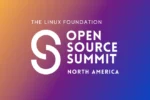When I was about 4 years old, I had a blankey. I took it everywhere, and my parents assured me that it was completely disgusting and filthy at almost all times due to my unwillingness to part with it even long enough to be washed.
While my blankey is now in a trunk at my parents’ house, I still have a security blanket: Linus Torvalds. As long as Linus is there, working on the Linux kernel, I know I’m safe, warm and comfortable. He’s like some sort of ancient god, casting his light upon his followers and sheltering them from the evils of other false deities.
Linus, a god? Well, if you’re a software developer that has spent any time at all working in organizations, open-source projects, or even local groups like hackerspaces or non-profit community centers, you should be intimately familiar with just why Linus deserved the 2014 IEEE Computer Pioneer Award.
As you may already know, humans can be a tad irrational. Anyone among you who has tried to build an organization consisting of more than about five people has probably noticed that at a certain point, things change from being an “us” mindset to being an “us over here, and that person or persons over there,” mindset. This happens in thousands of ways. One of the most common and frequently in the news of late is due to sexism, racism, and/or harassment.
Put another way: Communities are hard work. It only takes one incident to split a community right down the middle, or worse yet, to disenfranchise many of those involved. This has happened repeatedly at San Francisco’s famous Noisebridge hackerspace, affectionately known as “Dramabridge” to those who frequent its extremely incendiary mailing list.
(Related: Docker cites Linus Torvalds as inspiration for new governance advisory board)
This also happened at Mozilla. At GitHub. At a dozen other places in the Valley. Someone says or does something stupid, and it is taken as representative of the community as a whole. The community then extricates the person at fault. Or, in really bad situations, the community splits along fault lines and no one ever knows who was really at fault. (An aside about Git: Linus, in May 2005, said “I could write better source control in two weeks.” He finished Git in June 2005, and handed it off to someone in
July 2005 as an open-source project. He was absolutely right.)
But this is exactly why we should all continue to worship Linus as a god. None of the things that happened at any of the above-mentioned communities had anything whatsoever to do with the end goals of those communities. They were sidetracked issues of the sort that pop up when your organization does anything even remotely ancillary to its overall goal.
That includes being a company. If Linus were a company, we’d all be doomed. But he’s not. He’s a benevolent dictator. A merit-based dictator. He is an evolutionarily selected gigantic throbbing brain at the center of the Linux community. About the only mean thing you can say of his rule is that he does not suffer fools gladly.
Nor should he! Being king is not easy, and it’s not a job you can do while teaching some peasant about the finer points of international relations. Nor can a lead developer get anything done when he or she has to spend their time explaining to the newbie just why their patch to change everyone’s icons into pink squares to support breast cancer research isn’t actually going to be merged because it’s not at all related to the project as a whole.
Without Linus at the top, Linux would be a mess. There are so many smaller fights already between GUI layers, between systemd and its variants, between the numerous distros and sub-distros that the community as a whole could never have survived this long without a ruthless, iron-fisted and brilliant leader at the helm.
And Linus is that leader. Any college-level poli sci student can probably tell you of that discussion everyone has in philosophy class where it is determined that the only effective form of government would have to be a benevolent dictatorship. And the Linux kernel is perfect proof of that fact.
Just look at OpenStack as an example of how not to do it. OpenStack has begun to devolve into fiefdoms. Core projects are breaking compatibility with other core projects simply because they’re all racing to see who can do things their own way first. It’s a complete mess, and it’s why OpenStack implementations inside of enterprises require millions of dollars and years of customizations to implement.
Hopefully the emergence of OpenStack distributions changes this. But it likely won’t. That’s because OpenStack is the culmination of about a hundred different visions.
The Linux kernel is the culmination of a single vision, modified by the advice and work of the most qualified and intelligent OS people on the planet. The kernel leads and their ancillaries over the years—Alan Cox, Greg Kroah-Hartman, Chris Wright, and a host of others—have succeeded in keeping the project pure, on target, and relatively free of drama.
In fact, the sorts of things that pass for drama in the Linux kernel are fairly mundane. Some folks complained when Linus decided, almost on a whim, to move the version numbering to 3.x. Others threw a fit when Ubuntu wasn’t contributing enough of its patches back to the kernel. And still others went nuts when Linus dressed someone down in a public forum.
But through it all, the kernel keeps advancing. With Linux Containers growing, and Linus’ iron grip on the kernel stronger than ever, we can all be sure that somewhere in Finland, our Linux god is watching over us. We shan’t expect him to be resigning over a Twitter scandal any time soon. Thank god!






